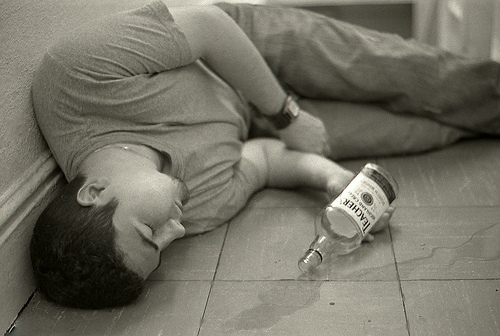The Dangers of Hazing

Hazing is one of the worst activities anyone can take part in. and it can seriously ruin someones life if taken too far.
May 10, 2017
When joining any social group it isn’t uncommon for new initiates to “prove” their loyalty by being hazed and completing either humiliating acts or withstanding physical abuse. Unfortunately, this initiation ritual is not as harmless as these social organizations make it seem. Timothy J. Piazza, a 19 year old sophomore at Penn State, was injured and died after being hazed just two days after he pledged at the Beta Theta Pi fraternity.
Piazza died from traumatic brain injury that resulted from several falls one of which was down a set of basement stairs. At one point during the night his blood alcohol content was between .26 and .36 percent, a life threatening amount. Now, eight members of the Beta Theta Pi fraternity are being charged with involuntary manslaughter. Since other members of the Beta Theta Pi fraternity were intoxicated they should not be fully punished for their actions. At the same time most of the fraternity members are under 21 and therefore drinking illegally so they will be punished for that.
This death highlights how widespread and unmanageable hazing can be. At least one death has occurred from hazing every year on a college campus from 1967 to 2017, totaling over 50 deaths. More than half of college students are involved in some form of campus hazing and and for every 10 students being hazed, only one of them realizes it.
Many of these students who have acknowledged being hazed in the past say their experience did not qualify because they were not forced to participate. According to most state school laws, students cannot consent to abuse. Hazing can be associated with any activity that would be considered degrading or demeaning usually involving drugs or alcohol, and any members who are reluctant to participate.
“I understand why some organizations might want to haze their new initiates, however, I believe that people should be responsible and sway away from the more dangerous and idiotic forms of hazing that may result in the death of a someone who has a bright future ahead of them,” senior Jillian Paz said.
Schools are trying to put an end to the life threatening tradition by convincing freshmen and transfer students to refuse participation. Some institutions have even considered banning Greek life permanently. Unfortunately that will not completely solve the problem; only 74 percent of Greek life members have been hazed. This might be the case because fraternities and sororities haze their new recruits to ensure their loyalty. Hazing has also been considered a way of building stronger friendships because of the bond created over mutual suffering.
With thousands of new and eager college students embarking on a new chapter in their lives, it is important to raise awareness about the seriousness of hazing and the atrocities that have come from it.










